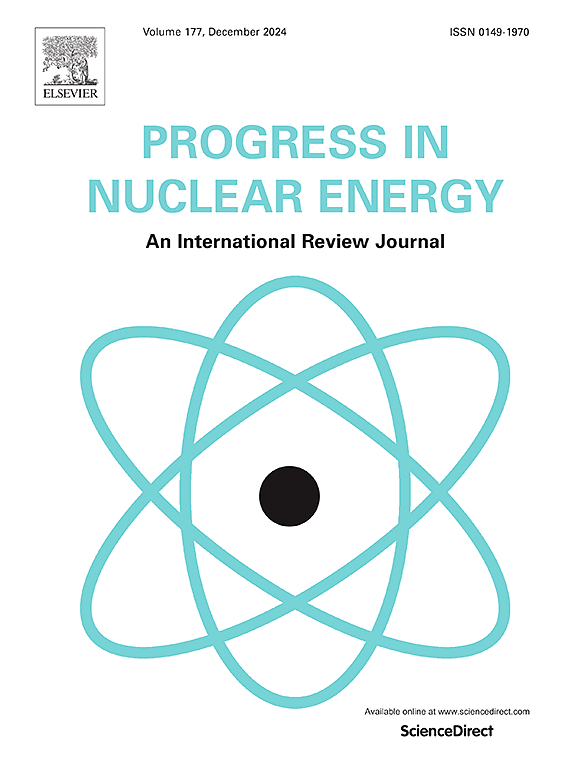An improved extended CREAM model using a 2-tuple linguistic and DANP in nuclear power plants
IF 3.3
3区 工程技术
Q1 NUCLEAR SCIENCE & TECHNOLOGY
引用次数: 0
Abstract
Human reliability analysis (HRA) is critical to avoid safety accidents in the advanced rooms of nuclear power plants. The cognitive reliability and error analysis method (CREAM) is a widely used approach to human reliability analysis. The extended CREAM considers the contexts and uses the common performance conditions (CPCs) to adjust nominal human error probabilities (HEPs). However, the extended CREAM lacks a systematic method for analyzing tasks, evaluates CPC information ambiguously, and there is a certain correlation between CPC factors. This paper's improved extended CREAM model quantitates analyzing human errors in the advanced rooms. Firstly, the improved extended CREAM combines the goals, operations, methods, and selection rules (GOMS) with the extended CREAM to systematically analyze the tasks to get the CPC status in the advanced rooms. Secondly, the improved extended CREAM takes the 2-tuple linguistic to evaluate the tasks and the relationship of CPCs. The approach analyzes the dependencies among the CPCs by the decision-making trial and evaluation laboratory (DEMATEL) gets the relative weights by the analytic network process (ANP), and gets the modified situation specific weights of the CPCs. Finally, we calculate the HEPs according to the modified situation specific weights of the CPCs. The hot shutdown case verifies that the improved extended CREAM model is correct and sensitive.
求助全文
约1分钟内获得全文
求助全文
来源期刊

Progress in Nuclear Energy
工程技术-核科学技术
CiteScore
5.30
自引率
14.80%
发文量
331
审稿时长
3.5 months
期刊介绍:
Progress in Nuclear Energy is an international review journal covering all aspects of nuclear science and engineering. In keeping with the maturity of nuclear power, articles on safety, siting and environmental problems are encouraged, as are those associated with economics and fuel management. However, basic physics and engineering will remain an important aspect of the editorial policy. Articles published are either of a review nature or present new material in more depth. They are aimed at researchers and technically-oriented managers working in the nuclear energy field.
Please note the following:
1) PNE seeks high quality research papers which are medium to long in length. Short research papers should be submitted to the journal Annals in Nuclear Energy.
2) PNE reserves the right to reject papers which are based solely on routine application of computer codes used to produce reactor designs or explain existing reactor phenomena. Such papers, although worthy, are best left as laboratory reports whereas Progress in Nuclear Energy seeks papers of originality, which are archival in nature, in the fields of mathematical and experimental nuclear technology, including fission, fusion (blanket physics, radiation damage), safety, materials aspects, economics, etc.
3) Review papers, which may occasionally be invited, are particularly sought by the journal in these fields.
 求助内容:
求助内容: 应助结果提醒方式:
应助结果提醒方式:


